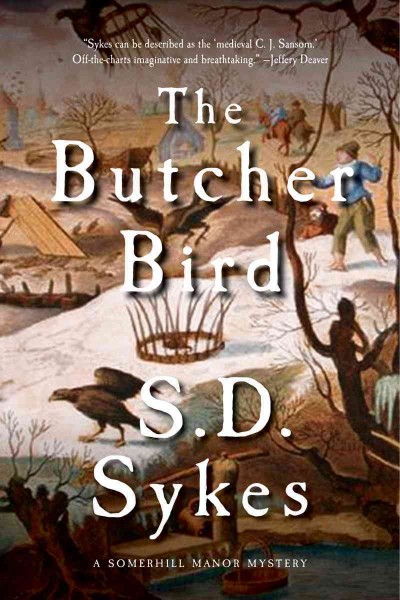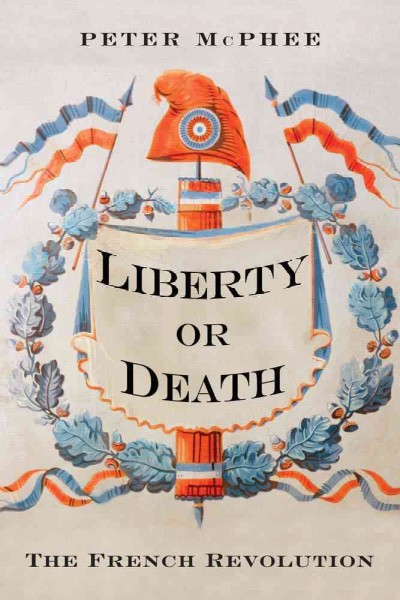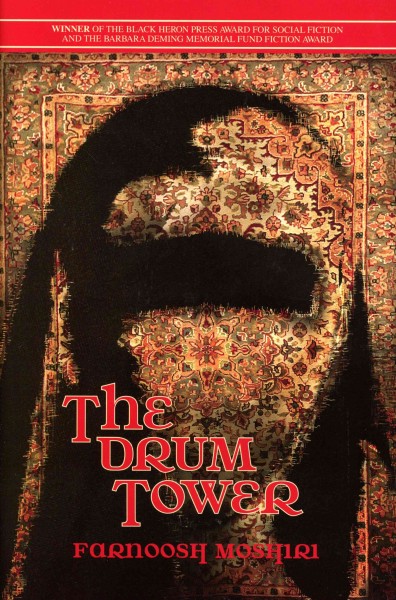
In our Today In History Reading List feature, we take the events of a particular day in history and try to give you a work of fiction and a work of non-fiction relating to those events.
1327 Edward III Crowned King of England
Due to colossal misrule, Edward II was deposed by his wife Isabella and her lover, Roger Mortimer. Edward II was defeated and Edward III was crowned king. However Isabella and Mortimer would be de facto rulers of England for the next three years, until Edward III lead a force against Mortimer, captured and executed him. His mother was not punished, but she lived the rest of her life away from court.


Edward III and the Triumph of England: The Battle of Crécy and the Company of the Garter by Richard Barber
This is a fascinating recreation of the world of one of England’s most charismatic monarchs, from award-winning author and historian Richard Barber. The destruction of the French army at Crecy in 1346 and the subsequent siege and capture of Calais marked a new era in European history. The most powerful, glamorous and respected of all western monarchies had been completely humiliated by England, a country long viewed either as a chaotic backwater or a mere French satellite. The young Edward III’s triumph would launch both countries, as we now know, into a grim cycle of some 90 years of further fighting ending with English defeat, but after Crecy anything seemed possible – Edward’s claim to be King of France could be pressed home and, in any event, enormous rewards of land, treasure and prestige were available both to the king and to the close companions who had made the victory possible.
Butcher Bird by S.D. Sykes
Oswald de Lacy is growing up fast in his new position as Lord of Somershill Manor. However, there is still the same amount of work to be done in the farms and fields, and the few people left to do it think they should be paid more—something the King himself has forbidden. Just as anger begins to spread, the story of the Butcher Bird takes flight. People claim to have witnessed a huge creature in the skies. A new-born baby is found impaled on a thorn bush. And then more children disappear. Convinced the bird is just a superstitious rumor, Oswald must discover what is really happening. He can expect no help from his snobbish mother and his scheming sister Clemence, who is determined to protect her own child, but happy to neglect her step-daughters. From the plague-ruined villages of Kent to the thief-infested streets of London and the luxurious bedchamber of a bewitching lady, Oswald’s journey is full of danger, dark intrigue, and shocking revelations.
1773 The French Republic Declares War of England and the Netherlands
The new French Republic after a successful war against the combined forces of Prussia and Austria, declared war on the Netherlands and her ally England. The French army under Charles François Dumouriez invade the Dutch Republic and are initially successful. However the Austrian army counter attacks and defeats the French Army at the Battle of Neerwiden effectively ending the war.


Liberty or Death: The French Revolution by Peter McPhee
Was the Revolution a major turning point in French—even world—history, or was it instead a protracted period of violent upheaval and warfare that wrecked millions of lives? McPhee evaluates the Revolution within a genuinely global context: Europe, the Atlantic region, and even farther. He acknowledges the key revolutionary events that unfolded in Paris, yet also uncovers the varying experiences of French citizens outside the gates of the city: the provincial men and women whose daily lives were altered—or not—by developments in the capital. Enhanced with evocative stories of those who struggled to cope in unpredictable times, McPhee’s deeply researched book investigates the changing personal, social, and cultural world of the eighteenth century. His startling conclusions redefine and illuminate both the experience and the legacy of France’s transformative age of revolution.
A Place of Greater Safety by Hilary Mantel
It is 1789, and three young provincials have come to Paris to make their way. Georges-Jacques Danton, an ambitious young lawyer, is energetic, pragmatic, debt-ridden–and hugely but erotically ugly. Maximilien Robespierre, also a lawyer, is slight, diligent, and terrified of violence. His dearest friend, Camille Desmoulins, is a conspirator and pamphleteer of genius. A charming gadfly, erratic and untrustworthy, bisexual and beautiful, Camille is obsessed by one woman and engaged to marry another, her daughter. In the swells of revolution, they each taste the addictive delights of power, and the price that must be paid for it.
1865 Abraham Lincoln Signs the 13th Amendment
The 13th Amendment abolishes slavery and involuntary servitude except as punishment for crimes. It was signed by Lincoln as one of the first steps in reconstruction following the Civil War. In 1863 the Emancipation Proclamation had outlawed slavery in the states that had seceded from the Union but did not effect the boarder states.


Who Freed the Slaves?: The Fight Over the Thirteenth Amendment by Leonard L. Richards
In the popular imagination, slavery in the United States ended with Abraham Lincoln’s Emancipation Proclamation. The Proclamation may have been limited—freeing only slaves within Confederate states who were able to make their way to Union lines—but it is nonetheless generally seen as the key moment, with Lincoln’s leadership setting into motion a train of inevitable events that culminated in the passage of an outright ban: the Thirteenth Amendment. The real story, however, is much more complicated—and dramatic—than that. With Who Freed the Slaves?, distinguished historian Leonard L. Richards tells the little-known story of the battle over the Thirteenth Amendment, and of James Ashley, the unsung Ohio congressman who proposed the amendment and steered it to passage. Taking readers to the floor of Congress and the back rooms where deals were made, Richards brings to life the messy process of legislation—a process made all the more complicated by the bloody war and the deep-rooted fear of black emancipation. We watch as Ashley proposes, fine-tunes, and pushes the amendment even as Lincoln drags his feet, only coming aboard and providing crucial support at the last minute. Even as emancipation became the law of the land, Richards shows, its opponents were already regrouping, beginning what would become a decades-long—and largely successful—fight to limit the amendment’s impact.
Cane River by Lalita Tademy
Follows four generations of African American women, from slavery to the early twentieth century, as they struggle for economic security and the future of their families along the Cane River in rural Louisiana.
1979 Ayatolla Khomeini Returns from Exile to Tehran
The Ayatolla Khomeini was exiled from Iran in 1964 for his opposition to the pro-American Mohammad Reza Shah. For most of that time he was either in Turkey or Iraq. When political unrest forced the Shah to flee Iran, Khomeini returned. He would go on to overthrow the Iranian government and establish the Islamic Republic of Iran.


Khomeini’s Ghost: The Iranian Revolution and the Rise of Militant Islam by Con Coughlin
Con Coughlin, the New York Times bestselling author of Saddam, returns with Khomeini’s Ghost, the definitive biography of Ayatollah Khomeini and his Islamic revolution. More than thirty years after Khomeini’s return to Tehran and the subsequent rebirth of Iran as an Islamic Republic, Khomeini’s Ghost offers an intimate, richly detailed portrait of the fundamentalist leader and architect of Iran’s adversarial relationship with the West—a man whose legacy has influenced history and policy, and will continue to do so for generations to come.
The Drum Tower by Farnoosh Moshiri
The Drum Tower is Farnoosh Moshiri’sfourth work of fiction concerned with the deleterious effects of the Iranian Revolution of 1979. This novel, told by a mentally ill, 16-year-old girl, depicts the fallof Drum Tower, the house of a family descended from generations of War Ministers. Rich in characters-Talkhoon, who struggles to control the winds she hears inside her head and who tells the story; Assad, a man made evil by his love for her; Anvar Angha, Talkhoon’s grandfather who has devoted his life to writing a book about the Simorgh (the mythical bird of knowledge; the Persian Phoenix) but never completes it; Soraya, Talkhoon’s mother, whom we never meet but about whom myriad and contradictory stories abound-and rich in family secrets, this novel chronicles the early days of the revolution, the ruthlessness and opportunism of the competing factions, the rise of the Revolutionary Guard, the chaos and murder in the streets of Tehran, the arrests and executions, as experienced by the members of this family.


